
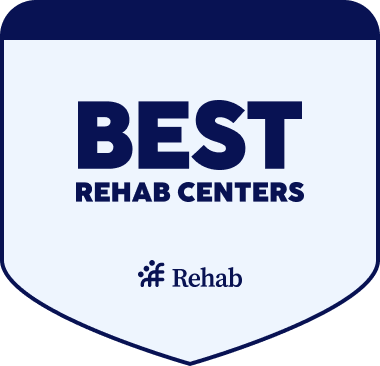
Drug and Alcohol Detox: Timelines, What to Expect, & Best Rehab Centers
Medical drug and alcohol detox is the first step in recovery, using round-the-clock medical support to safely manage withdrawal and clear substances from your system. In this guide, you’ll learn detox timelines, what to expect, costs, and next steps. We also showcase some of the best drug and alcohol detox centers in the U.S. so you can choose the right fit with confidence.
Best Drug & Alcohol Detox Centers
| Name / Address / Rating | Description | Treatments / Payments / Programs | Review / Contact | Images |
|---|---|---|---|---|
Cave Creek, AZ 1
Top 10 in Medically Assisted Detox
Rehab Score
Our Rehab Score is designed to make it easier for you to find the best treatment centers. We combine overall ratings with recent feedback to create a score that reflects a center’s quality right now.
8.90 / 10 | Soberman’s Estate, located in Cave Creek, Arizona, is an alcohol and drug rehab center that provides addiction treatment services to adult men, professionals, and public figures. They are a discrete, luxury rehab for individuals aged 30 to 80 years old. This location caps their treatment center at ten men at a time. Soberman’s Estate focuses on | Treatments Programs Payment Options | Soberman’s Estate was everything I needed for my recovery. The staff, the program, physical activity and culinary experience were top notch and essential. The program is well designed and worked better than I expected. The staff is remarkable – professional, considerate and genuinely caring. My time there and being removed from alcohol for five weeks was everything I needed to remove my craving for alcohol. Soberman has changed my life in ways I never could have imagined. I feel confident, secure and grateful for my new life. I have reconnected with my family and friends. Thank you Soberman.
George B.
3 months ago
Yes, very professional staff, treatment, therapist, chefs were good! even the home cook did the best she could, and loved the horses of Course! Saturday morning hiking was fun to explore the trails of the nearby mountain area!
John E Williams
3 months ago
I had a great experience overall and would recommend it to anyone wanted to jump start their sobriety!!
Kevin Crawford
3 months ago
| 
5 5 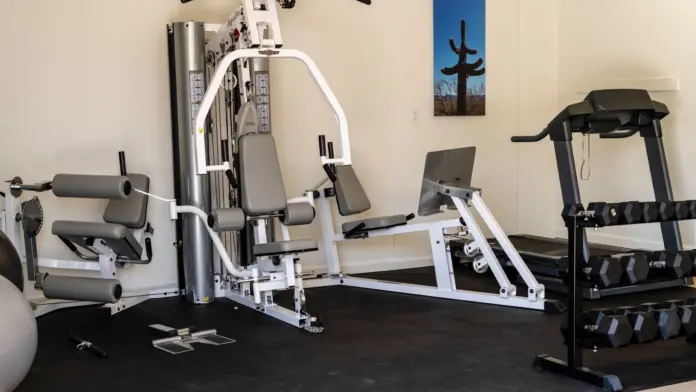



|
Clarksville, IN | Avenues Recovery Center in Clarksville, Indiana, is an inpatient drug and alcohol detox and rehab center. They strive to provide individuals receiving treatment with a loving environment and attentive medical care. You’ll be away from toxic environments and triggers and have the opportunity to focus on developing life skills that will support you | Treatments Programs Payment Options | Avenues is truly amazing. I couldn’t ask for better people to help me start my journey. I’m so grateful for all of you!
Tarrah
1 week ago
Katina is the most thoughtfulness and know and woman everI I love her so much
Shelley McBride
1 week ago
This place although only 30 days has changed my life. The staff is the most understanding group of people I’ve experienced in recovery. If you need and want help I suggest you go to Avenues.
Teresa Lee
1 week ago
| 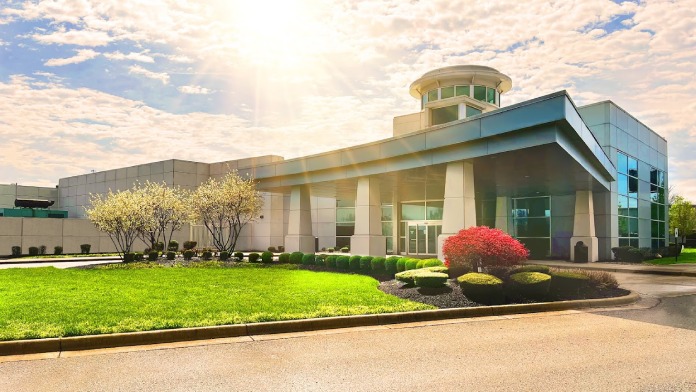
4 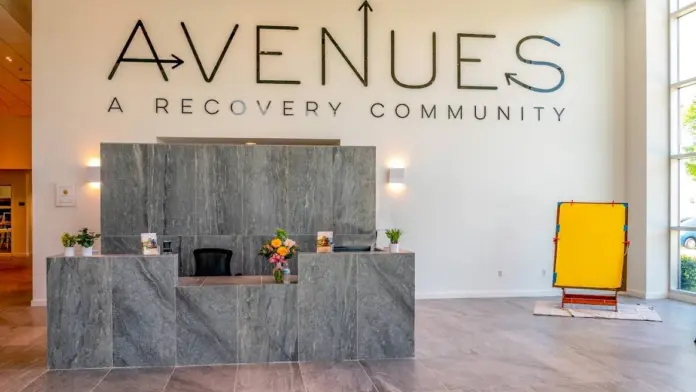
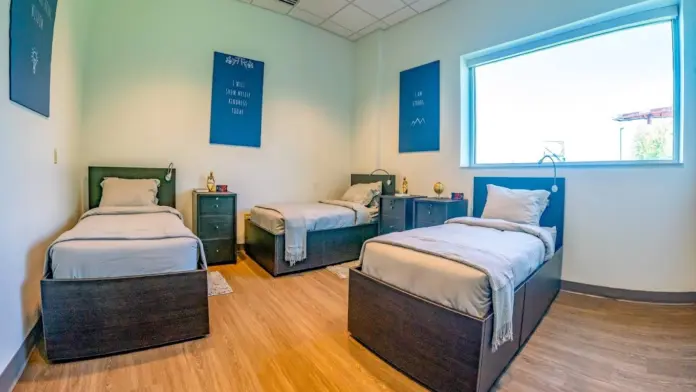
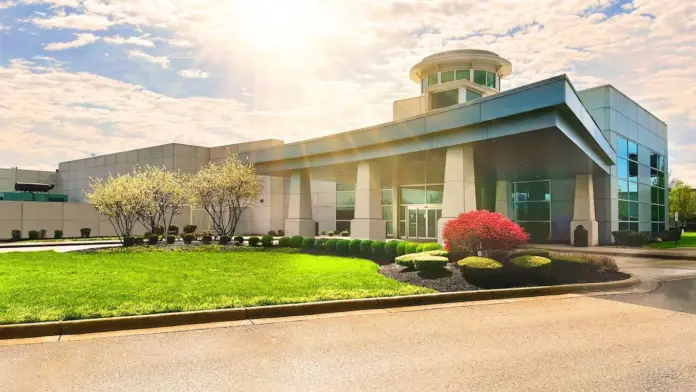
|
Simi Valley, CA 2
Top 10 in Medically Assisted Detox
Rehab Score
Our Rehab Score is designed to make it easier for you to find the best treatment centers. We combine overall ratings with recent feedback to create a score that reflects a center’s quality right now.
8.80 / 10 | All In Solutions Detox in Simi Valley is one of the best ranked inpatient detox facilities in California providing safe, medically supervised care for individuals beginning their recovery from drug or alcohol addiction. As part of the All In Solutions Behavioral Health network, this facility serves as the first step in a full continuum of care. Cli | Treatments Programs Payment Options | This place saved my life. Great facility and staff. I was very nervous/scared to come here but the staff were very friendly and helpful. If you are thinking about treatment I highly recommend this place.
xCochise
2 weeks ago
This program dramatically help me get back on track in my recovery and was very well staffed and organized was an amazing experience.
Jacob Berghaus
3 weeks ago
I recommend calling the facility to confirm what the sales team tells you is true. The staff facility and people are great.
Amanda Cortes
4 weeks ago
| 
5 5 

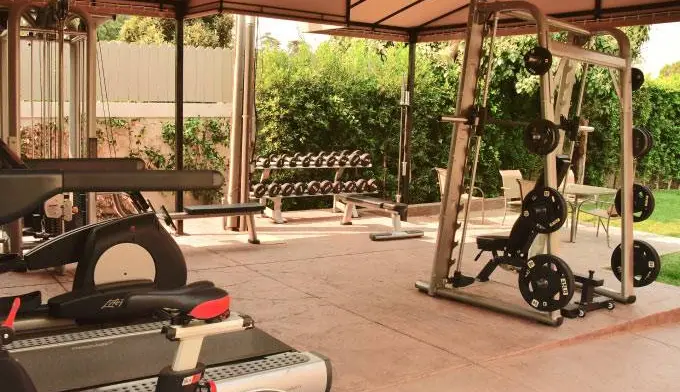
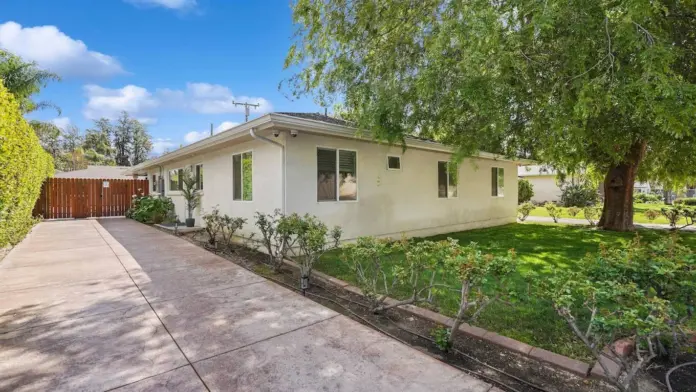
|
Hurst, TX 3
Top 10 in Medically Assisted Detox
Rehab Score
Our Rehab Score is designed to make it easier for you to find the best treatment centers. We combine overall ratings with recent feedback to create a score that reflects a center’s quality right now.
8.80 / 10 | Symetria – Hurst Outpatient Rehab and Suboxone Clinic in Hurst, Texas, is a private drug rehabilitation clinic for adults. One of the best outpatient rehab centers in Texas, Symetria offers various withdrawal medications to help clients get started with their recovery journey. You’ll also have access to treatments such as the intensive outp | Treatments Programs Payment Options | Symetria is unbelievably amazing!!! The Hurst staff is phenomenal!!! I can’t imagine that another location has a better staff. A special shout out to Deborah, Benjamin, and Samantha of course. You all are doing amazing, amazing, selfless work. You all are very special to so many!!!
Vernon Godsey III
3 months ago
Huge shout out to the team at symetria who make me feel like family I appreciate everything they do and huge shout out to Osagie for helping me! He is AWESOME!!! I love you symetria❤️❤️❤️
Chloe Roseman
3 months ago
BEST PLACE EVER. I have tried various other doctors/clinics and none of them even begin to compare to this one. The staff here is absolutely amazing. I can’t even make a single complaint. Dr Son is the best as well. He explains everything and you truly feel like he understands you. I can proudly say this, this place saved my life. If you or someone you know needs help getting off opiates do it right the first time and come here. You won’t be disappointed. If you are specifically struggling with fentanyl please don’t waste your time with other ways. I have tried 6 other methods from lazer therapy to having the earpiece to suboxone. Methadone is the key to our current fentanyl crisis. This clinic makes recovery possible again!
Mason
4 months ago
| 
5 5 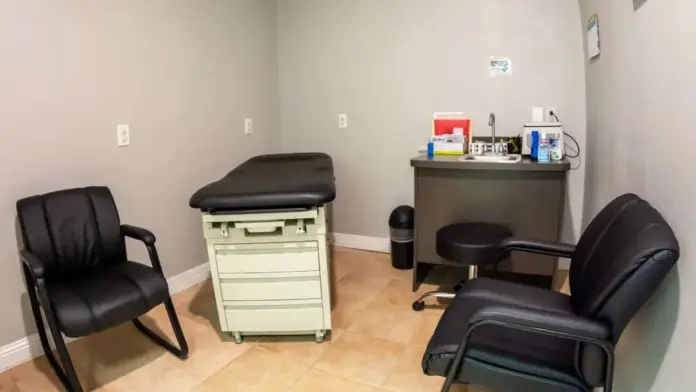
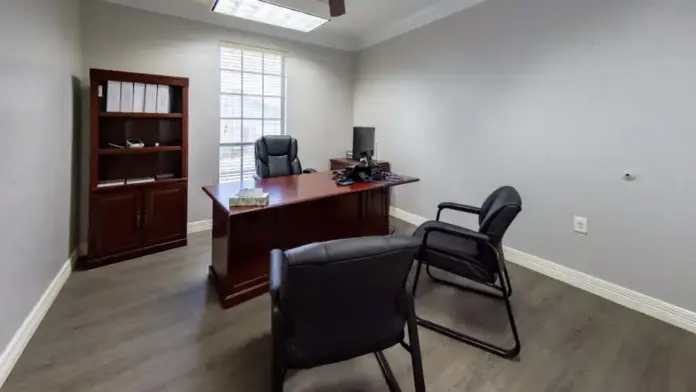
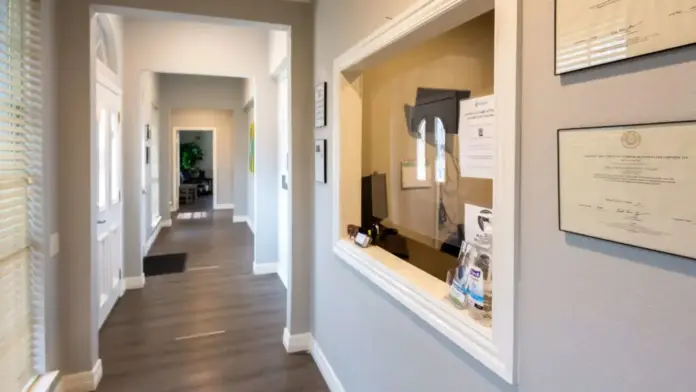
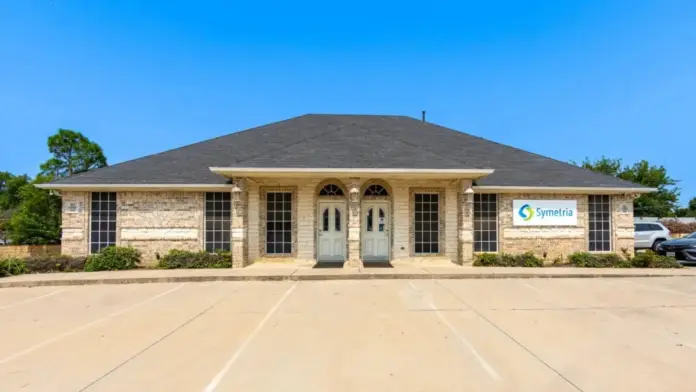
|
Boynton Beach, FL 4
Top 10 in Medically Assisted Detox
Rehab Score
Our Rehab Score is designed to make it easier for you to find the best treatment centers. We combine overall ratings with recent feedback to create a score that reflects a center’s quality right now.
8.80 / 10 | All In Solutions Counseling Center is a mental health center and addiction treatment program in Boynton Beach, Florida. They provide a partial hospitalization program, an intensive outpatient program (IOP), an outpatient program, medication-assisted treatment, and mental health care for adults with substance use disorder. All In Solutions Counseli | Treatments Programs Payment Options | All In Solutions received me with open arms for the second time. The staff make sure you receive a high quality care treatment. I’m grateful for the love and care . God continue to bless everyone.Thank you for you do .
Jianil Richiez
4 days ago
This place changed my life. My therapist was great and all the staff was great.
Ash Leigh
1 week ago
My time at All in Solutions has been the most valuable important decision I’ve ever made. I have nothing but love and respect and gratitude to all the staff who helped guide me to a freedom I thought I could never have!!! I love you guys from the depths of my soul!!! Thank you Thank you Thank you!!!!
Ben Rhea
2 weeks ago
| 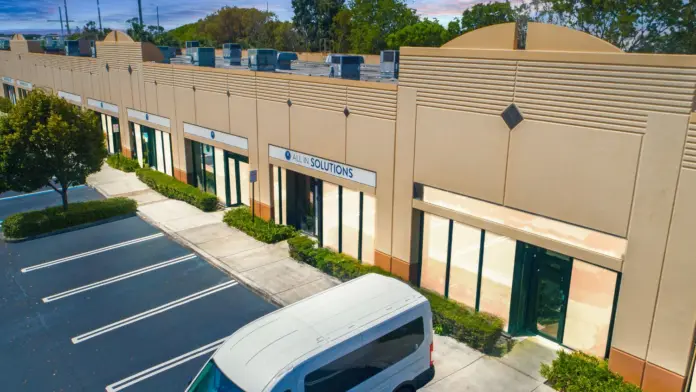
4 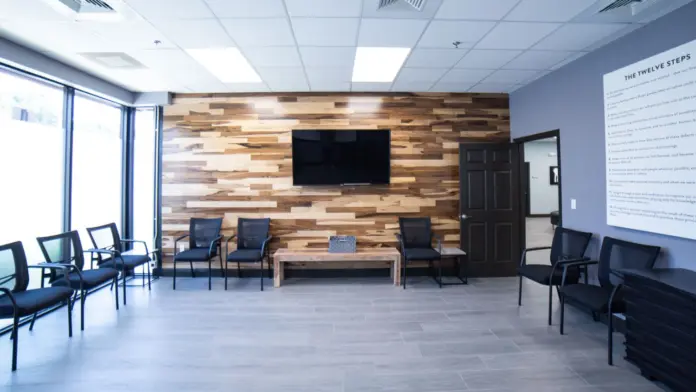
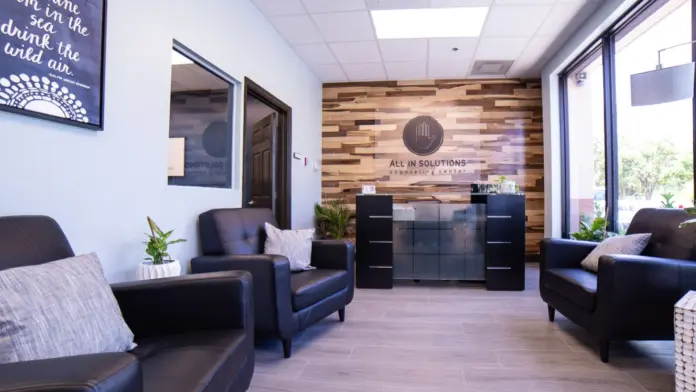
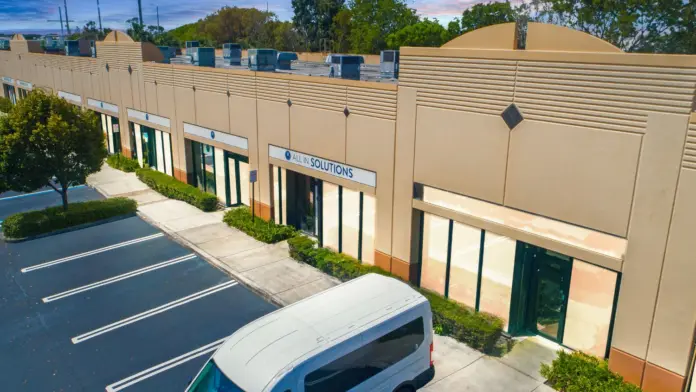
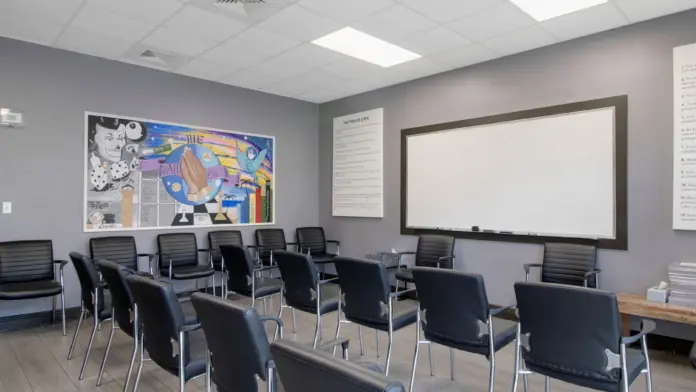
|
Galloway, NJ 5
Top 10 in Medically Assisted Detox
Rehab Score
Our Rehab Score is designed to make it easier for you to find the best treatment centers. We combine overall ratings with recent feedback to create a score that reflects a center’s quality right now.
8.80 / 10 | Boca Recovery Center – Galloway is a drug and alcohol rehab in Galloway, NJ. They provide inpatient addiction treatment and medical detox. Boca Recovery’s New Jersey Drug & Alcohol Rehab, located in Galloway, New Jersey offers residential addiction treatment, medical detox, and medication-assisted treatment in an immersive treatment s | Treatments Programs Payment Options | My sobriety journey started at Boca. The staff members including Miss Tracey, Hannah and Kevin their alumni coordinator have completely flipped the trajectory of my life. I was immediately taken in with open caring arms and they made my detox process as comfortable as possible. During my stay, Joe was extremely helpful in helping me slowly gain my appetite back and start to feel stronger and was so attentive to my nutritional health. Nurse Patrick was so kind to me during my intake and Kevin still reaches out to me very often to check in and is so helpful in my recovery process. I owe gaining my life, my strength and my family back to Boca and I am eternally grateful❤️
Rianna Dean
2 weeks ago
Great facility with even greater staff. One of the best rehab/detox in South, NJ.
Donna Kratzer
3 weeks ago
Very comfortable stay
Will
4 weeks ago
| 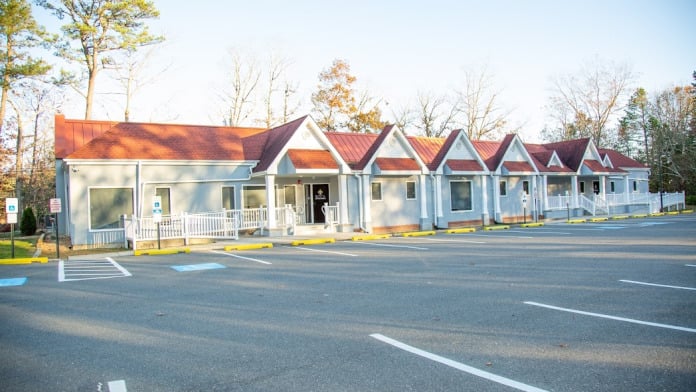
7 7 
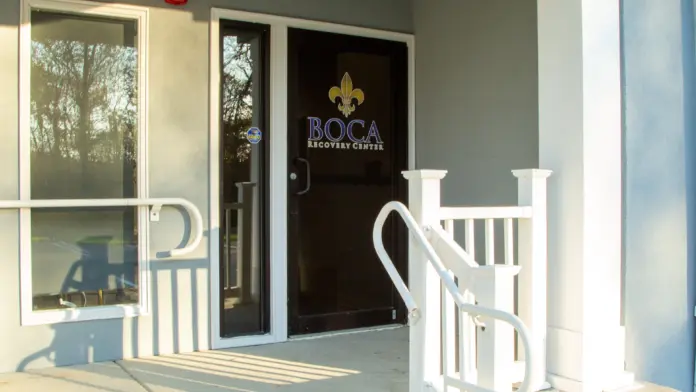
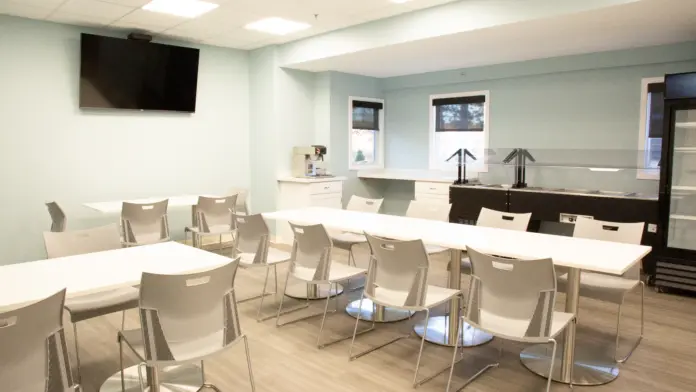
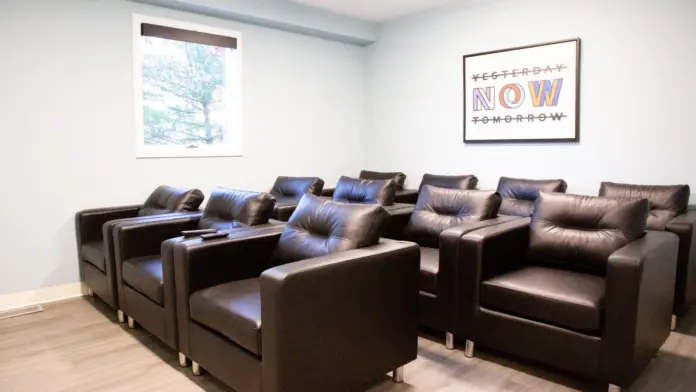
|
Bloomington, IN | The Boca Recovery Center is a luxury alcohol and drug rehab center for adults in Bloomington, Indiana. They specialize in cutting edge addiction treatment provided in a residential setting. One unique part of this alcohol and drug rehab in Indiana is the peaceful, secluded setting. If recovering in a clinical hospital setting doesn’t sound very a | Treatments Programs Payment Options | This place damn near saved my life. Staff is amazing and care almost on a personal level. Nurses are knowledgeable and groups are interactive informative and inclusive
V Montez
5 days ago
Boca recovery was a magical experience during a very difficult time that will always hold a special place in my heart. From top to bottom, the support of staff is second to none.
Tyler and Carrie, Carter, Alexx, Ashley, Brooke, Michelle, Meagan, and the rest of the techs are phenomenal. My therapist January opened my eyes to perspectives I had been missing my entire life and Justin the case manager worked tirelessly from the start all the way until his wife gave birth on my last day to make sure I was set up for success.
The nurses are amazing and the medical attention someone needs during this portion of their recovery is 110% offered around the clock.
The place has everything you need from a gym to recreational activities, spacious beds with luxury amenities. And one cannot go without mentioning the chef, Tim. You won’t find better “rehab food” and conversation.
I owe a thank you to the director John for his efforts to get me into a great program after my stay was over.
To anyone struggling with with mental health and/or addiction, I cannot shout praises loud enough for what this program has to offer each and every client that walks through those doors.
If you want a way out, there’s no better place to check in.
Alex K
3 weeks ago
My name is Derick Caldwell and I had a good time there I learned a lot there the staff was amazing especially the techs and the clients they help me get through my depression and sadness just wanted to say Thanks…I forgot the food was right on time also 😁
James Sander
3 weeks ago
| 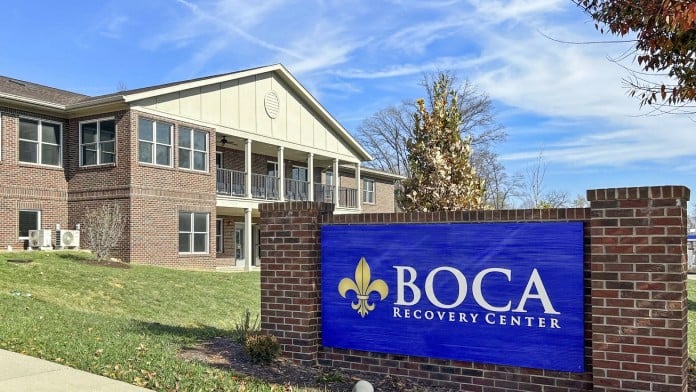
6 6 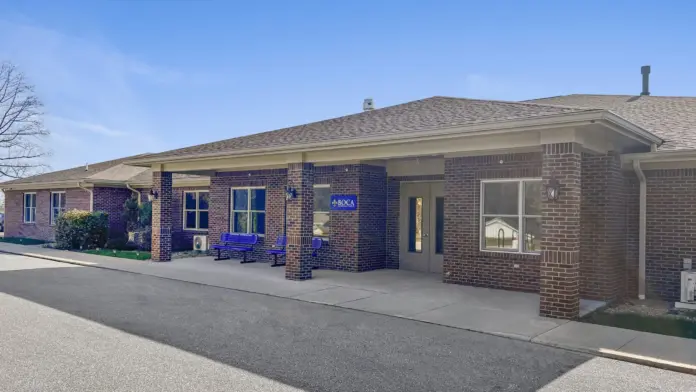
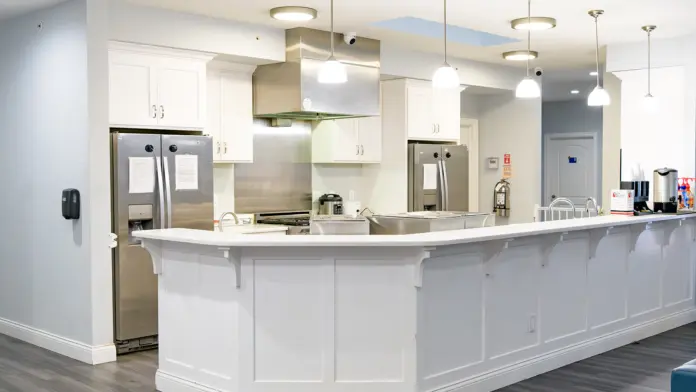
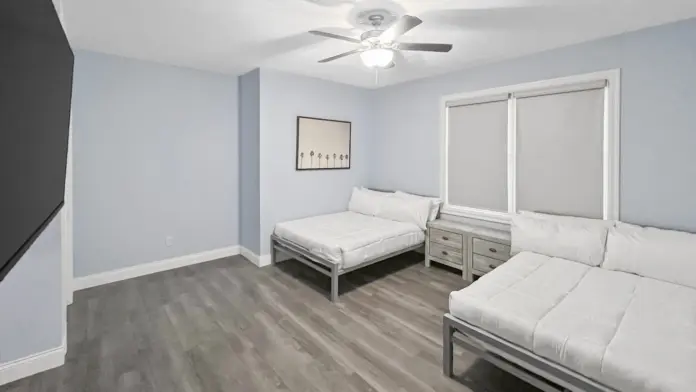
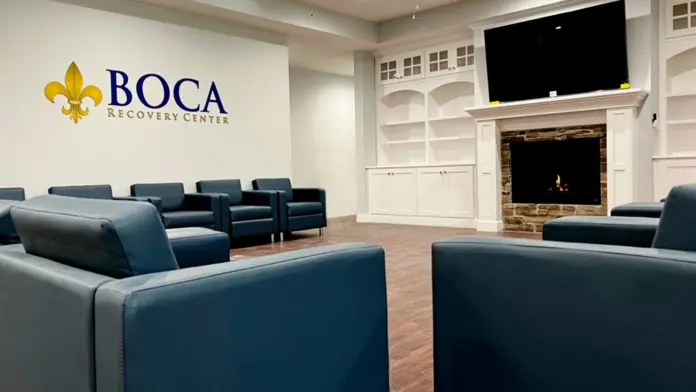
|
Woodbury, TN 6
Top 10 in Medically Assisted Detox
Rehab Score
Our Rehab Score is designed to make it easier for you to find the best treatment centers. We combine overall ratings with recent feedback to create a score that reflects a center’s quality right now.
8.77 / 10 | If you’re looking for a Christian-based men’s drug rehab center, S2L Recovery in Woodbury, Tennessee, might be the place for you or your loved one. Located at the top of Short Mountain, and overlooking the green hills of Middle Tennessee, this residential and detox clinic boasts a one-to-one staff/patient ratio so there’ll always be someone t | Treatments Programs Payment Options | Coming from Canada, I was hesitant. But God knew that S2L was exactly where I needed to be. At 64 years of age, I was able to discover my true identity, purpose, and mission in Christ. They help you in trying to get clean and sober for sure. But what S2L and the staff are all about is the Gospel of Jesus Christ. That’s why it is so successful.
TIM TANNER
3 months ago
I’ve had the privilege of seeing the life-changing impact this ministry has on countless men & I can’t recommend it highly enough! God has His Hand on this ministry & I’m honored to see the Lord work in these men!
Hunter Stanfield
3 months ago
Come here with a open mind and heart. It can and WILL change your life in all ways. Trust the process and trust God! Could go on and on about how amazing this place, I’ll forever be grateful!
Trevor Woodard
3 months ago
| 
6 6 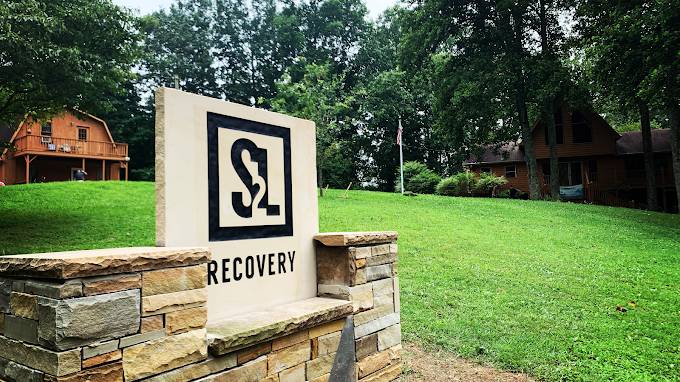



|
Levittown, PA 7
Top 10 in Medically Assisted Detox
Rehab Score
Our Rehab Score is designed to make it easier for you to find the best treatment centers. We combine overall ratings with recent feedback to create a score that reflects a center’s quality right now.
8.76 / 10 | The Steps To Recovery addiction treatment center is situated in Levittown, Pennsylvania. At this drug rehab center, patients can expect to engage in a unique treatment approach that focuses on helping individuals recover through authenticity, intimacy, community connection, and transparency. Steps to Recovery offers a serene and private environ | Treatments Programs Payment Options | Good place, great housing
Nicole Rivera
2 months ago
Amazing support network and great staff lovely time with my stay at STR buck
William Perry
2 months ago
My experience at Steps to Recovery has been great for the most part, the people and the environment are very welcoming and comforting. I have had some issues that have come up, but they usually get resolved. My only main gripe is with some of the other clients at the community living house fail to clean up after themselves, and some do not know self control. But, the staff here is very professional and easy to talk to. I find that the opportunities here for my recovery journey are pretty good, although I’d like access to more holistic therapy resources. I’ve actually personally facilitated a Dharma meeting and will facilitate more in the future. I appreciate my time here at STR and am excited for the future with them.
Jerry Davis
3 months ago
| 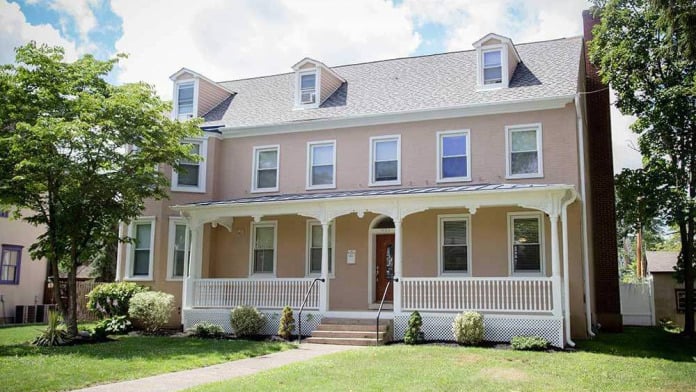
6 6 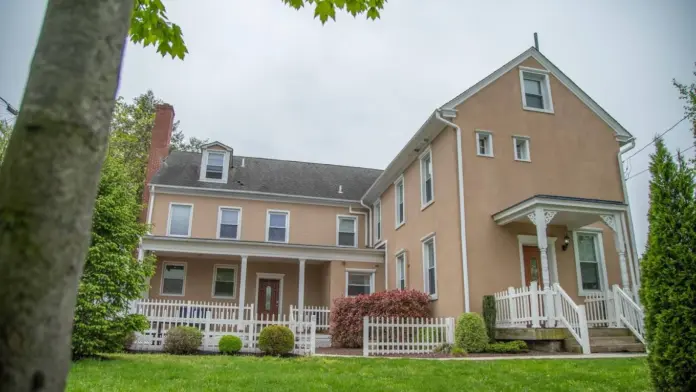
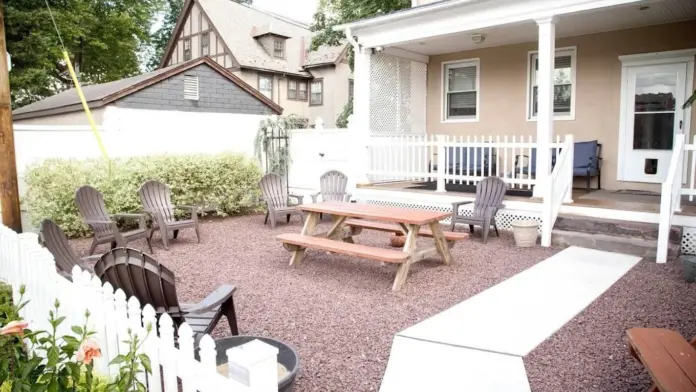
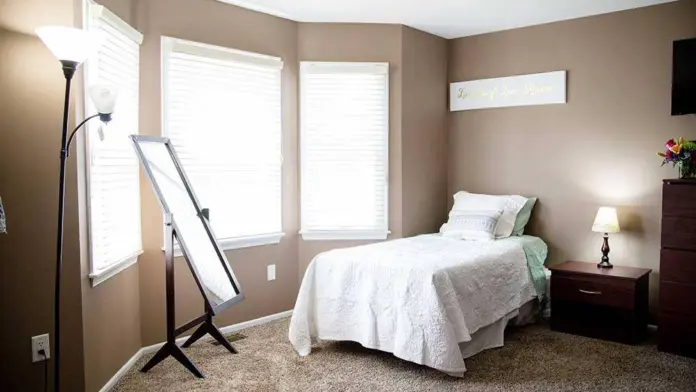

|
Watsonville, CA 8
Top 10 in Medically Assisted Detox
Rehab Score
Our Rehab Score is designed to make it easier for you to find the best treatment centers. We combine overall ratings with recent feedback to create a score that reflects a center’s quality right now.
8.76 / 10 | Located in Watsonville, California, Elevate Addiction Services provides alcohol and drug rehab services to men and women suffering from addiction. Their levels of care include detox, inpatient treatment, and outpatient treatment. One of the best ranked Outpatient treatment centers in California, Elevate Addiction Services provides a wide continuum | Treatments Programs Payment Options | I have been through other treatment facilities in the past; but Elevate has by far been the best experience I could’ve hoped for. Recovery isn’t just the ability to abstain from substances, but the capability of transforming from within. Not only has Elevate help me appreciate the things within me but everything around me as well. Thank you, Elevate for changing the trajectory of my life and my marriage!!
Michael Amodeo
4 weeks ago
Great place. The staff super nice amd very knowedgable about addictions. Its a very special place. Better than all others ive gone to. Definate thumbs up
Tyler Kerney
1 month ago
Our experience with Elevate Addiction Services has been truly life-changing. From the very beginning, the director, family liaisons, counselors, therapists, continuing care coordinators, house dad’s – we felt genuine compassion and care from everyone we had the pleasure of interacting with. We were kept informed of how our son was doing every step of the way. It never felt like we were alone in this. Everyone at Elevate was fighting for our son right alongside of us.
The love and compassion shown to our son meant everything. Today, he is living clean & sober, feeling confident in the tools and foundation Elevate equipped him with. Elevate welcomed him with open arms. Watching him complete the program and graduate has been one of the proudest moments of our lives.
We are so deeply grateful for Elevate and the loving and compassionate professionals who work there.
Without hesitation, we would highly recommend Elevate Addiction Services to anyone seeking help for themselves or a loved one. They helped our son find his way back.❤️
Kenny & Shelly Wright
1 month ago
| 
5 5 



|

Medical Detox for Drugs & Alcohol
Medical Detox for Drugs & Alcohol
Medical detox is the first step in the addiction recovery process that clears alcohol or drugs from the body, controls withdrawal symptoms, and prepares you for meaningful rehab.
In this guide, you’ll learn why professional drug detoxification beats “cold-turkey” attempts, which substances require medical detox, how to choose between inpatient versus outpatient withdrawal management, and when medications like buprenorphine or a benzodiazepine taper are vital for safety.
We break down detox timelines for alcohol, opioids, stimulants, and benzos; unpack costs, insurance, and payment plans; and discuss relapse prevention strategies.
Read on and plan your first – and last – detox with confidence.
Jump to:
- What Is Medical Detox?
- Why (and When) You Might Need Medical Detox
- Drugs That Require Medical Detox
- Is Outpatient or Inpatient Detox Right for You?
- The Medical Detox Process (3 Phases)
- Medications Used During Medical Detox
- How Long Does Medical Detox Take?
- Managing Discomfort With Evidence-Based Support
- Safety, Risks & Myths About Detox
- Life After Detox: Continuing Care & Relapse Prevention
- FAQs About Medical Detox
- Find Medical Detox Centers Near You
Key Points
- Medical detox safely removes substances under physician supervision, managing dangerous withdrawal with medications and round-the-clock monitoring.
- Inpatient versus outpatient is chosen by withdrawal risk, overall health, support network, cost, and insurance coverage.
- Substance timelines differ: alcohol DT danger at 48 to 72 hours; opioids peak day 2 to 3; benzodiazepines need gradual taper.
- Evidence-based remedies include CBT, acupuncture, hydration & nutrition, sleep hygiene, anxiety skills, and trauma-informed counseling.
- MAT maintenance, step-down care, combined with family or peer support dramatically cut relapse risk and improve recovery outcomes.
What Is Medical Detox for Drugs and Alcohol?
What Is Medical Detox for Drugs and Alcohol?
Medical detox is a physician-directed, medically supervised process that stabilizes someone through withdrawal and clears addictive substances from the body while closely managing symptoms.
During this clinical withdrawal management phase, doctors and nurses track vital signs, give tapering medications (e.g., benzodiazepines or buprenorphine), and treat complications so the patient is ready for formal rehab and counseling. Attempting a “social” or at-home detox can be dangerous in some circumstances, particularly for alcohol, benzodiazepines, and opiate addiction.
Within the levels of care for addiction treatment, medical detox is the highest level of care for the most severe substance addictions. National Institute on Drug Abuse guidelines stress that detox is only the first step of addiction treatment and should be followed by step-down care and ongoing therapy for lasting recovery.
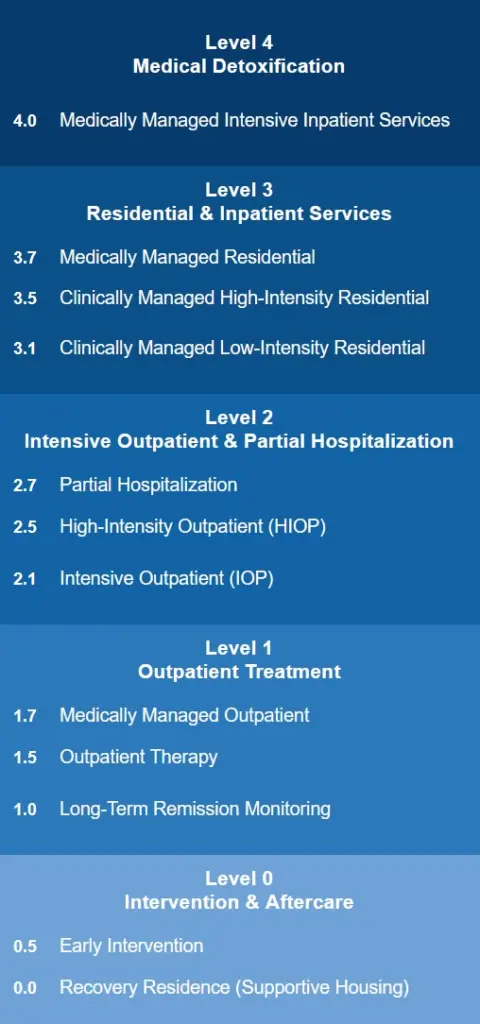
Medical detox can occur in a residential treatment center or in a structured outpatient program when risks are lower. The proper level of care should be chosen after an assessment of substance type, withdrawal severity, medical history, and your home recovery environment.
Why (and When) You Might Need Medical Detox
Why (and When) You Might Need Medical Detox
For some people, quitting on their own is merely uncomfortable; for others, it can turn dangerous in a matter of hours. Alcohol withdrawal delirium tremens (DTs) develops in roughly 5 % of heavy drinkers who stop suddenly and can be fatal without rapid medical care.
A physician-run detox program is recommended if you use substances that carry high-risk withdrawals or have taken large doses of opioids for a long time. Benzodiazepine withdrawal can bring on life-threatening seizures when the dose is cut too fast, while opioid detox often causes severe vomiting and diarrhea that may lead to dangerous dehydration without IV fluids and medication.
Co-occurring health problems, pregnancy, advanced age, or a history of complicated withdrawal further raise the stakes and tip the decision toward medically supervised care.
Inpatient detox offers 24/7 monitoring for anyone at high medical or psychiatric risk. Outpatient medical detox may suit people with more moderate symptoms, strong social support, and daily access to nurses or physicians. Either pathway stabilizes you enough to enter counseling and relapse-prevention programs and move on to long term recovery.
Signs & Severity Indicators
You or a loved one should seek medical detox if you notice:
- Previous withdrawal seizures, hallucinations, or DTs
- Shaking, heavy sweating, racing heart, or high blood pressure within hours of the last drink or dose
- Visual, auditory, or tactile hallucinations, confusion, or disorientation
- Uncontrolled vomiting, diarrhea, or inability to keep fluids down
- Severe anxiety, panic attacks, suicidal thoughts, or deep depression during early sobriety
- Pregnancy or serious medical conditions (e.g., liver, heart, or respiratory disease)
- Mixing multiple substances, especially alcohol with benzodiazepines or opioids
- Repeated failed attempts to quit because symptoms became overwhelming
If any of these red flags appear, a medically supervised detox can greatly reduce complications and pave the way for effective treatment.
Drugs That Require Medical Detox
Drugs That Require Medical Detox
Withdrawal from certain substances can be more severe than others. If you or a loved one have become physically dependent on any of the following substances, it is important to begin with medical detox to provide the necessary supervision and medical intervention to ensure a safe start on your recovery journey.
Alcohol
Alcohol consumption affects the central nervous system, which means it inhibits functions such as heart rate, blood pressure, and motor skills. As a result, when a person withdraws from alcohol, they can experience increased heart rate, blood pressure, and body temperature. Without medically supervised detox, individuals who suffer from DTs experience a 37% fatality rate.
In some cases, they may experience Delirium Tremens (DTs). This serious alcohol withdrawal syndrome includes symptoms such as irregular heart rate, hallucinations, tremors, and seizures.
Benzodiazepines
Benzodiazepines (benzos) are sedatives prescribed to calm anxiety and panic. Medications such as valium and Xanax fall into this category of drugs. During detox from benzodiazepines, as many as 80% of patients experience some kind of withdrawal symptoms.
Benzos act as central nervous system depressants, which means they can cause withdrawal symptoms that are similar to the symptoms of alcohol withdrawal. Potentially dangerous symptoms include muscle spasms, tremors, nausea, hallucinations, seizures, and psychosis.
Due to the risks involved with these symptoms, medical detox is recommended for individuals who are physically dependent on benzodiazepines.
Opioids
Opioids include substances such as morphine, codeine, heroin, fentanyl, and oxycodone. They are often prescribed as painkillers, and they are abused for the “euphoric” feeling they can stimulate in the brain.
When opioid use ceases or is reduced, the body experiences withdrawal that can feel like a severe flu. Symptoms include muscle aches, vomiting, diarrhea, clammy skin, and anxiety.
While these symptoms are typically not life-threatening, untreated vomiting and diarrhea can lead to a fatal level of dehydration. An unsupervised person in withdrawal is also at risk of choking after vomiting, which can be fatal.
During medical detox, physicians can prescribe medications to lessen withdrawal symptoms, curb cravings, and prevent extreme discomfort. Staff also provide 24/7 supervision to prevent fatal accidents.
Stimulants
Stimulants speed up messages between the brain and body, which makes the person feel more energetic, alert, and confident. Common stimulants include cocaine, methamphetamine, MDMA, and prescription amphetamines such as Adderall. Withdrawal symptoms vary based on the drug.
Cocaine withdrawal typically causes more psychological symptoms than physical. The person may feel anxious, depressed, irritable, or paranoid, and they will experience intense cravings for the drug. While these symptoms aren’t life-threatening, they can generate an unsafe mental state. It can be helpful to be in a supportive medical detox environment where doctors can prescribe medications to address mental health-related symptoms and provide appropriate support.
Methamphetamine withdrawal can be more physically dangerous. Symptoms include fatigue, appetite changes, headaches, insomnia, muscle spasms, and psychosis. Individuals withdrawing from meth can become dehydrated and experience extreme hallucinations, anxiety, and paranoia. In a medical detox setting, doctors can monitor the individuals for signs of dehydration and prescribe sedatives to calm their nervous system.
Is Outpatient or Inpatient Detox Right for You?
Is Outpatient or Inpatient Detox Right for You?
Both inpatient and structured outpatient detox can safely guide you through withdrawal. The determination of when to choose one over the other lies in the level of supervision and daily support you need.
In an inpatient detox unit, you stay on-site for several days under 24-hour care from physicians, nurses, and counselors.
Vital signs, hydration, and mental status are checked every few hours, and any sudden complications can be treated immediately with IV fluids, medication, or transfer to a hospital ICU if necessary. Because you’re in a controlled environment, triggers and access to substances are removed, which lowers the chance of early relapse.
In a structured outpatient detox, you sleep at home and visit the clinic each day (or several times per week) for medical check-ins, medication adjustments, and counseling.
You still receive tapering medicines and lab work as needed, but you rely on family or sober-living supports to monitor you between visits. Outpatient programs are usually less expensive and let you keep work or caregiving commitments, but they require reliable transportation and a stable, drug-free living space.
You’ll Likely Need Inpatient Detox If…
- You have a history of withdrawal seizures or severe benzodiazepine / alcohol dependence
- A co-occurring medical or psychiatric condition (e.g., heart disease, pregnancy, suicidal thoughts)
- You’re using multiple depressant substances (alcohol, benzos, and/or opioids) or very high daily doses
- You lack safe housing or supportive people who can monitor you around the clock
Outpatient Detox May Be Appropriate If…
- Withdrawal is expected to be mild to moderate (no past seizures or DTs)
- You have strong social support, stable housing, and can return promptly to the clinic if symptoms worsen
- You’re highly motivated, can manage daily medication at home, and need to maintain work, school, or family duties
- Your physician determines that vital signs, labs, and overall health are stable enough for partial-day monitoring
Not sure which is the right fit?
Talking about your substance use history, medical background, and home environment will help decide which level of care offers the safest – and most sustainable – start to recovery.
Call A Treatment Provider
For a conversation about what treatment options are available to you.
Make a Call
The Medical Detox Process (3 Phases)
The Medical Detox Process (3 Phases)
If you choose medical detox, clinicians will provide a tailored treatment plan that addresses your unique needs. This personalized treatment makes each individual’s detox experience slightly different; however, you can expect the following basic steps:
Step 1: Evaluation
The medical team completes a comprehensive review of your medical and psychiatric history. This evaluation will allow them to identify any pre-existing medical conditions, substance use disorders, and co-occurring disorders that should be considered. They will also perform blood tests to determine the level of substances in your system. After completing this thorough evaluation, the team can create an appropriate treatment plan.
Step 2: Stabilization
The next phase of medical detox focuses on stabilizing your physical and mental health. The medical team may prescribe addiction treatment medications to reduce withdrawal symptoms and cravings, as well as provide mental health services to address the psychological side of substance dependence.
Step 3: Addiction Treatment
While medical detox helps you break free from physical dependence on substances, it is only the first step of recovery. It prepares you physically and mentally to enter a comprehensive treatment program that will help you achieve long-term sobriety.
During detox, clinicians will explain treatment options, which include inpatient and outpatient programs. Both offer a combination of therapies and support services that address the psychological aspects of addiction. Treatment may include individual therapy, support groups, medication to treat addiction, and holistic treatment modalities.
Medications Used During Medical Detox
Medications Used During Medical Detox
During the evaluation phase of medical detox, staff will determine which medications will be most beneficial to include in your treatment plan. They may prescribe medications to alleviate withdrawal symptoms, curb cravings, or treat co-occurring disorders. Some medication-assisted treatment (MAT) continues after detox to prevent relapse.
The most commonly prescribed medications for medical detox and medication-assisted treatment include methadone, buprenorphine, and naltrexone.
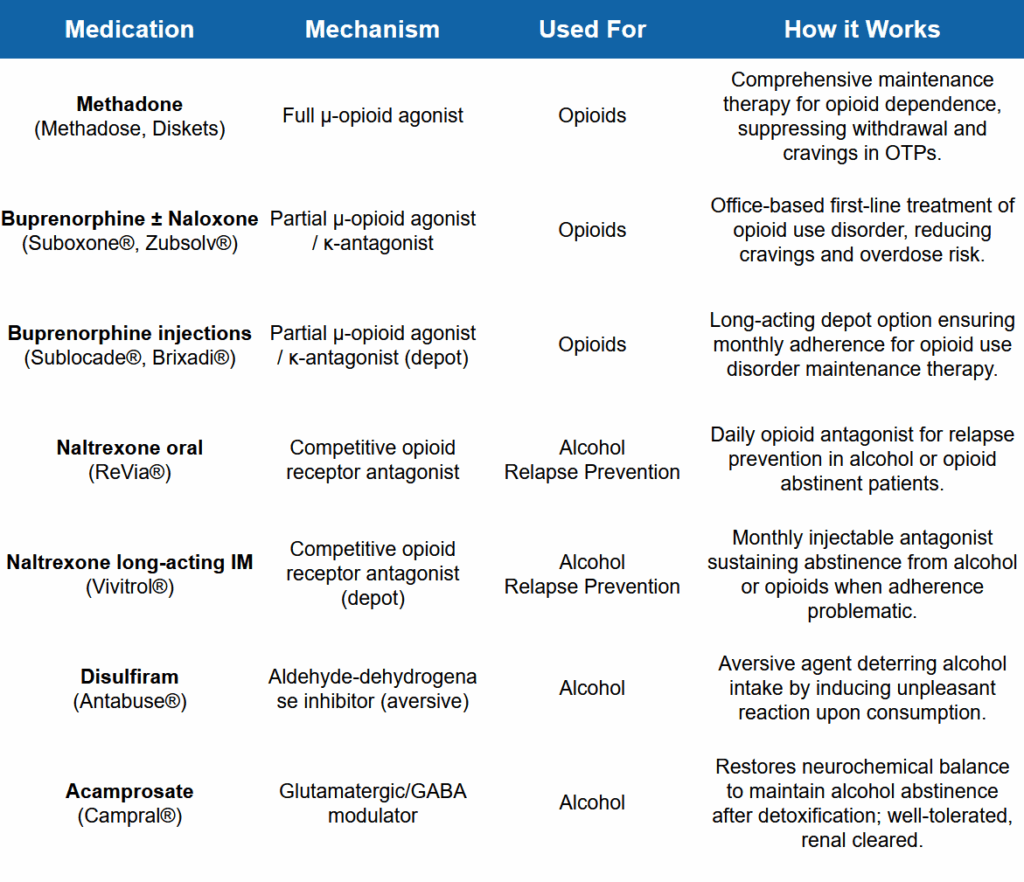
Methadone
Methadone is a long-acting opioid that is prescribed to treat opioid use disorder. It works by attaching to the same brain receptors as other opioids, but it doesn’t create the dramatic highs (and lows) of opioid abuse.
This helps block opioid withdrawal symptoms and cravings. It also reduces the effects of other opioids, so people taking methadone have less desire to abuse them. Patients taking methadone can taper off gradually to break free from opioid addiction.
Because this drug is an opioid itself, it can also be addictive, so its use is highly regulated. Medical detox centers must be certified to prescribe methadone.
Buprenorphine
Buprenorphine (aka Suboxone) is another long-acting opioid, but it activates brain receptors less strongly than methadone or illicit opioids. This allows the drug to minimize withdrawal symptoms and reduce cravings for individuals who are physically dependent on short-acting opioids such as heroin or oxycodone.
Several forms of buprenorphine are available, including long-lasting injectable forms and short duration oral forms.
Naltrexone
Naltrexone is an opioid antagonist used to treat both opioid and alcohol use disorders. When taken, it blocks opioid receptors so a person using alcohol or drugs does not experience the typical pleasurable feelings associated with the substances.
This effectively reduces cravings and discourages substance use. Individuals must be abstinent from opioids or alcohol for one week before taking naltrexone.
Other Prescriptions
In addition to these medication-assisted treatment prescriptions, clinicians may also prescribe a combination of medications to address withdrawal symptoms or co-occurring disorders. These may include anti-psychotics, anti-nausea medication, sleeping pills, antidepressants, and over-the-counter pain medication.
How Long Does Medical Detox Take?
How Long Does Medical Detox Take?
On average, medical detox lasts 7 to 10 days. However, it can be as short as 3 days or as long as 2 weeks; the exact length of detox varies based on personal history and the withdrawal timeline for the specific substances abused.
For most substances, the most intense withdrawal symptoms occur during the first week. The most notable exception is benzodiazepines, which require a much more gradual taper to safely manage side effects.
Ongoing psychological effects like anxiety and insomnia can last for weeks or months. If you experience these long term withdrawal symptoms, medical staff may prescribe a combination of therapy and medication to ease symptoms while you focus on healing.
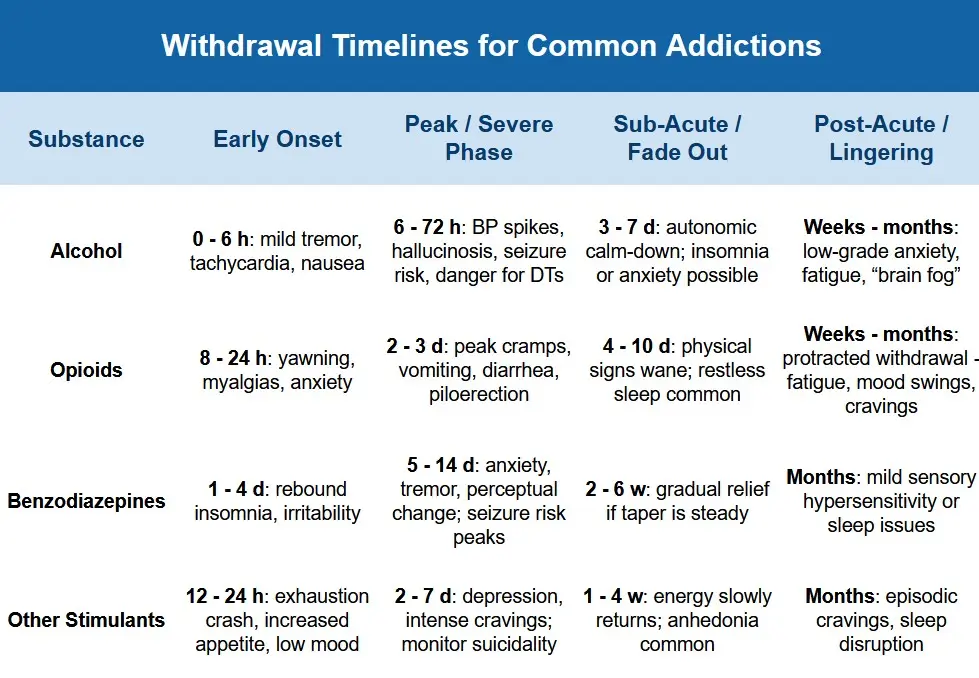
Alcohol Withdrawal
Treatment: A symptom-triggered benzodiazepine taper (often diazepam or lorazepam) plus thiamine, fluids, and electrolyte support is the gold standard for alcohol withdrawal management.
- 0 – 6 hours: mild tremor, fast pulse, nausea
- 6 – 48 hours: blood-pressure spikes, hallucinations, seizure risk
- 48 – 72 hours: highest danger for delirium tremens (DTs)
- 3 – 7 days: symptoms fade, but sleep trouble or anxiety may linger
- Weeks: low-grade anxiety, fatigue, “brain fog” slowly improve with therapy and MAT adjuncts (e.g., acamprosate)
Opioid Withdrawal
Treatment: FDA-approved MAT to ease cravings, stabilize brain chemistry, and manage the side effects of opiate withdrawal.
- 8 – 24 hours after last short-acting dose (or 24 -48 h for methadone): muscle aches, yawning, anxiety
- 2 – 3 days: peak stomach cramps, vomiting, diarrhea, gooseflesh
- 4 – 10 days: physical symptoms ease; restless sleep may persist
- Weeks – months: fatigue, mood swings. Managed with extended MAT and behavioral therapy
Benzodiazepine Withdrawal
Treatment: Because abruptly stopping can trigger seizures, detox centers follow “substitute-then-slow” taper protocols. Typically, this involves converting to diazepam and reducing dosage by 5% to 10% every 1 to 2 weeks.
- 1 – 4 days: rebound insomnia, irritability
- 5 – 14 days: anxiety, tremor, perceptual changes; seizure risk highest
- 2 – 6 weeks: gradual symptom relief if taper pace is steady
- Months: mild sensory sensitivity or sleep problems can linger; gabapentin, propranolol, or cognitive-behavioral therapy help
Stimulants & Others
Treatment: No current MAT protocol exists for other substances, so treatment is focused on easing symptoms: hydration, sleep aids, antidepressants, and emotional support.
- 12 – 24 hours: “crash” of exhaustion, increased appetite, low mood
- 2 – 7 days: depression, intense cravings; watch for suicidal thoughts
- 1 – 4 weeks: gradual energy return, but anhedonia (lack of pleasure) is common
- Months: episodic cravings and sleep disruption; ongoing therapy, exercise, and balanced nutrition bolster recovery
Understanding these timelines and treatment tools lets you and your care team design a personalized, safe withdrawal management plan and helps set realistic expectations for the path ahead.
Managing Discomfort With Evidence-Based Support
Managing Discomfort With Evidence-Based Support
Even with medications, staying comfortable through detox and early recovery takes a full toolkit grounded in evidence-based research, rather than guesswork.
These strategies can help soothe the body, steady the mind, and reduce relapse risk while you transition into therapy.
Non-pharmacologic Aids (CBT, acupuncture, hydration)
Aside from medication, there are several evidence-based approaches you can try to help manage drug or alcohol withdrawal symptoms during detox:
Cognitive behavioral therapy (CBT)
Brief, skills-focused sessions teach you to reframe cravings, practice paced breathing, and reduce anxiety.
Acupuncture & acupressure
Studies show ear acupuncture (the NADA protocol) can lower agitation and improve sleep quality during detox.
Hydration & nutrition
Aim for at least 2 liters of water or electrolyte drinks daily, alongside protein, complex carbs, and magnesium-rich foods to ease muscle tension.
Exercise & rest
Exercise improves circulation, releases natural endorphins, and stretches muscles to ease soreness. Good sleep hygiene (dark room, fixed bedtime, screen curfew) promotes deep relaxation.
Co-occurring Mental Health & Trauma-Informed Care
Many people entering detox carry untreated co-occurring mental health conditions like anxiety, depression, or post-traumatic stress. Mental health screening at admission lets clinicians add evidence-based therapies to your care plan.
Experienced clinicians trained in trauma-informed principles keep language non-judgmental, explain every procedure, and offer choices to restore a sense of safety. Ongoing psychiatric support, plus short-term medications for severe panic or insomnia, can help smooth out this bumpy initial step of recovery.
When physical comfort, emotional health, and nutritional balance are treated in tandem, your chance at long-term success and healing improves.
Safety, Risks & Myths About Detox
Safety, Risks & Myths About Detox
Why Cold Turkey Can Be Deadly
Some people choose to go “cold turkey” and simply stop using substances without any treatment assistance. However, this can be dangerous and involve discomfort that can be avoided with medical detox.
Withdrawal can cause nausea, aches and pains, headaches, vomiting, and other unpleasant symptoms. While these may not be life-threatening, a medical detox setting can provide treatment to make the process much more comfortable.
More importantly, withdrawal can cause fluctuations in blood pressure, heart rate, and body temperature and can also cause seizures, paranoia, and dehydration. In extreme cases with drugs like alcohol or benzodiazepines, these side effects of quitting cold turkey can be fatal if not properly managed.
During medical detox, the entire process is supervised by healthcare professionals who monitor vital signs and provide medications to mitigate withdrawal symptoms. Treatment can also be provided to address any co-occurring disorders such as anxiety or depression.
The individual who is detoxing in their bedroom at home does not have these resources available to help them. In short, medical detox is safer.
It can also be more effective for long-term recovery. Individuals who complete medical detox instead of quitting “cold turkey” are more likely to stay in treatment and experience substantial stretches of sobriety.
Other Forms of “Detox”
When we talk about “detox” in the context of addiction treatment, it’s important to be clear that it carries a very different meaning than what most people mean when they talk about detox.
Detox drinks, juice cleanses, and sauna flushes can remove some dietary waste, but they do nothing to reverse the brain and body dependence that drives withdrawal and relapse. Medical detox, by contrast, uses evidence-based medications, vital-sign monitoring, and follow-up planning to ensure safe, successful treatment.
Fad cleanses at best do very little to ease withdrawal symptoms, and at worst, can cause significant harm if chosen over proper medical care.
Equally misleading are rapid or overnight opioid detox packages performed under anesthesia. A CDC investigation found that:
7 of 75 patients
7 of 75 patients (including 2 deaths) suffered life-threatening complications after a rapid detox procedure, prompting health department warnings to avoid these programs in favor of standard, step-down care.
Walking out of detox without continuing treatment is a setup for relapse.
SAMHSA’s Treatment Improvement Protocol 45 notes that one-third to one-half of people who finish outpatient detox on benzodiazepines either resume drinking or drop out of care within days, underlining the need for ongoing counseling and medication-assisted treatment.
Safe recovery is a marathon, not a sprint. If you want to get clean and stay clean long-term, your best bet is to get treated at a licensed detox center.
Cost, Insurance & Payment Options
Cost, Insurance & Payment Options
The cost of medical detox, like the cost of other addiction treatment, varies by setting, length of stay, and amenities, but recent national surveys give useful ballparks:
$200 – $500/day
Outpatient detox programs typically run between $200 – $500 per day, depending on the severity of addiction. Includes daily clinic check-ins, take-home meds, and telehealth support.
$700 – $1,000/day
Inpatient detox programs typically cost between $700 – $1,000 per day due to the higher level of care required. This cost includes 24/7 nursing, private room, on-site labs, and meals.
*Rates can swing higher in metro areas or luxury facilities. Some facilities may offer sliding scale or payment assistance to lower cost.
Private Insurance
All ACA-compliant health insurance plans must cover substance-use disorder services, including detox, at parity with medical care. Plans cannot impose annual or lifetime dollar caps, though you’ll still owe deductibles or coinsurance. Learn more about private insurance coverage for drug rehab and see what coverage is offered by your provider.
Medicaid
The 2024 Consolidated Appropriations Act permanently requires every state Medicaid program to fund medication-assisted treatment and related withdrawal services. Many beneficiaries pay little or no out-of-pocket costs, but prior approval and state specific limits may apply.
TRICARE
Active duty members, veterans, and their families can access inpatient and outpatient detox, intensive outpatient programs, and office-based opioid treatment under TRICARE Prime, Select, and other plans, subject to modest copays.
Other Payment Assistance
If you’re uninsured or underinsured, ask providers about scholarships, payment plans, or state SUD block-grant funds. An admissions advisor can help verify benefits and project your real out-of-pocket cost before you commit to care.
Call A Treatment Provider
For a conversation about what treatment options are available to you.
Make a Call
Life After Detox: Continuing Care & Relapse Prevention
Life After Detox: Continuing Care & Relapse Prevention
Here’s what you can expect from ongoing treatment protocols after your initial detoxification from drugs and alcohol is finished.
Step-Down in Levels of Care
Detox is only the starting line; the next stage is a step-down continuum that keeps clinical support in place while you rebuild daily life.
Partial Hospitalization Program
6 to 8 hours of therapy, medical visits, and skills groups each weekday; you sleep at home but have access to resources if symptoms flare up.
9 to 15 treatment hours a week, often evenings, so you can return to work or school while practicing new relapse-prevention tools.
One to three therapy or medication management visits weekly for monitoring, urine screens, and ongoing goal setting.
MAT Maintenance
Continuing buprenorphine, methadone, or naltrexone after detox stabilizes brain chemistry and helps keep cravings at bay. Up to 90% of people with opioid use disorder relapse without MAT.
Doses are adjusted in clinic visits, and many programs layer CBT or contingency management on top, recognizing addiction as a chronic condition that benefits from long-term medication management, much like diabetes or hypertension.
Family & Peer-Support Integration
Recovery gains strength when loved ones understand the process. Family therapy teaches communication skills, sets healthy boundaries, and equips spouses or parents to spot early warning signs.
Peer-support meetings like 12 step, SMART Recovery, or faith-based groups provide accountability and hope from people who have walked the same path. Facilities that incorporate family and friends into treatment plans report higher retention and lower six-month relapse rates than programs that treat the patient in isolation.
Detox treatment is the first step on a long road. Your success one, three, or five years down the road is heavily influenced by what happens after you finish treatment as much as it is influenced by what happens during treatment.
FAQs About Medical Detox
FAQs About Medical Detox
Can I detox from more than one substance at the same time?
Yes, comprehensive detox centers routinely treat “polysubstance” withdrawal. Your care team will tailor medications and monitoring schedules to address each drug’s timeline and risk profile, such as combining a benzodiazepine taper for alcohol with buprenorphine for opioids. Always disclose every substance you use so clinicians can prevent drug-interaction complications.
How do I know a detox facility is reputable and safe?
Look for state licensing plus accreditation from organizations like The Joint Commission or CARF. Verify that 24/7 medical supervision is provided by board-certified addiction physicians and registered nurses, and ask about emergency transfer protocols. Reading independent reviews and checking state disciplinary boards can also reveal any red flags.
Will my employer find out I’m in medical detox?
Under HIPAA, your treatment details remain confidential. If you need time off, the Family and Medical Leave Act (FMLA) and, in many states, paid-leave laws protect eligible employees who seek substance-use disorder care. You may need a simple note stating “medical treatment” – your specific diagnosis is not disclosed to your workplace.
What should I pack for an inpatient detox stay?
Bring comfortable, loose clothing, non-slip shoes, personal toiletries without alcohol (e.g., perfume-free), a list of current medications, and contact information for doctors or family. Most centers limit electronics, caffeine, or sharp objects for safety. Leave valuables and large amounts of cash at home; facilities typically provide meals, linens, and basic hygiene items.
What happens if I start to relapse after detox?
Early lapses are common and treatable. Programs employ rapid-response protocols: re-evaluation by a clinician, medication adjustments (e.g., naltrexone or extended-release buprenorphine), and intensified counseling or a higher level of care such as PHP or residential treatment. Prompt intervention turns a slip into a learning moment rather than a full return to uncontrolled use.
Find Medical Detox Centers Near You
Find Medical Detox Centers Near You
Medical detox is the safest way to begin the healing process from drugs or alcohol – and depending on your addiction, it may be medically necessary. Use our nationwide Rehab Directory to compare accredited inpatient and outpatient centers, verify insurance acceptance, and read reviews from patients in one place.
Still unsure which path fits your needs?
Call
800-985-8516
( Sponsored Helpline )
today to speak with someone who can explain treatment levels, confirm coverage, and schedule a more detailed assessment.
Recovery is not a single event; it’s a series of decisions that move you toward health, purpose, and connection. Whether you’re seeking help for yourself or a loved one, the choice you make right now can spark a lifetime of change.
Top Rated Detox Centers
Finding facilities near you…

